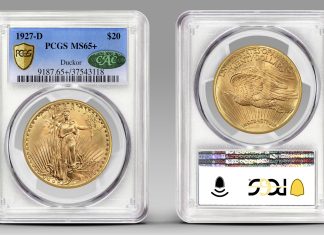Tuesday’s trading action in New York opened on a slightly defensive note following an overnight interest rate hike by the Chinese central bank and a half-dollar drop in crude oil values (to $107.92 per barrel) that came on the back of rising perceptions that Col. Gaddafi’s days in power are now numbered (possibly in the single digits).
T raders have come very close to perceiving Libya (its oil output, anyway) as being "back in business" as rebel forces might be days away from selling their first tanker’s worth of crude to the markets under a different "management." Mr. G’s sons are meanwhile purported to be offering their Papa’s ouster and a transition to a constitutional democracy. Alas, they have a bit of a … credibility problem.
raders have come very close to perceiving Libya (its oil output, anyway) as being "back in business" as rebel forces might be days away from selling their first tanker’s worth of crude to the markets under a different "management." Mr. G’s sons are meanwhile purported to be offering their Papa’s ouster and a transition to a constitutional democracy. Alas, they have a bit of a … credibility problem.
Spot gold dealings opened with a small, $0.90 per ounce loss, quoted at $1,433.60 as against a 0.13 gain in the US dollar on the trade-weighted index. A brief spike to $1,440 followed gold’s opening as buyers once again attempted to test overhead resistance but then pulled back for a respite. The greenback gained a bit of traction against the euro as — despite the imminent ECB rate hike — the region’s common currency is still "at risk" from the lingering peripheral country debt issues.
Spot silver was off by 17 cents at the opening in New York, quoted at $38.45 per ounce after having scaled fresh peaks at $38.82 in Asian overnight dealings. The near-term bullish case for silver remained in focus among speculators following the breach of resistance in the mid-$38 range yesterday. Elliot Wave analysis opines that "as improbable as it seems, if silver does not turn lower soon, a blow-off could develop that rivals the vertical ascent and subsequent crash that created the price peak that has stood for 31 years."
Platinum and palladium fell modestly this morning, but still appeared to be discounting the disruptions in Japanese automobile output that have now resulted in soon-to-come interruptions in production at various US facilities of various popular nameplates. Platinum dropped $1 to ease to the $1,784.00 mark while palladium lost $4 to open at the $781.00 per ounce price level.
Rhodium remained still at $2,330.00 the ounce. The speculative focus in that niche remains manifest and players will be monitoring the in/out flows of PGM-based ETFs for clues to subsequent market direction. On the market’s radar as well, the approaching deadline (May 9) for the submission of indigenization plans by mining firms operating in Zimbabwe.
It appears now that this week is shaping up as "central banking festival week." Having extended a very generous helping hand to various caving economies since the global economic upheaval began, the world’s monetary officials have now apparently come to that pivotal fork in the road where they must choose a different path, lest the inflation bogey becomes an actual threat and not just something that commodity and currency traders are trying to scare the rest of us with via their aggressive betting. By all reasonable market metrics, such bets have been factoring in inflation rates that compute the desired targets being aimed for by central banks several times over, and then some. This may be the first week of this year when their bluff could be called. Read on:
Chinese monetary authorities made good on Premier Wen’s promises to fight rising inflation and enacted a one-quarter point interest rate hike overnight. The adjustment in rates was the fourth one since the beginning of the financial crisis and it was clearly aimed at constraining the threat of various bubbles that are seen forming within the planet’s still fastest-growing economy. The PBOC’s benchmark lending rate thus becomes 6.31 percent effective from tomorrow and it signals its commitment to keep the "inflation tiger" that Premier Wen has warned about, caged and securely sedated. Mr. Wen has described said animal as a threat to social order in his country.
Joining the ranks of his hawkish fellow colleagues, Fed Chairman Bernanke said, in a much-anticipated speech in Stone Mountain, Georgia late last night that the US version of that same ferocious feline "must be watched extremely closely." Currency strategists immediately noted that the markets may well be underestimating the speed and degree of the Fed’s imminent shift in monetary policy. The last time Mr. Bernanke made such references to inflation and the need to monitor its pace was on March 1st and it was followed by a similarly hawkish FOMC communiqué on the 15th of last month.
Since then, a raft of Fed district Presidents have leaned into various media microphones and basically invited the markets to "read their lips" when it comes to the matter of containing inflation, exiting from accommodation, and ratcheting up US interest rates. Much of that posturing was lost on the carry-trade crowd as it continued to push various assets towards previous (oil) or fresh (gold and silver) price peaks at the very same time that such speeches were given. To wit, speculators increased their net-long positions in crude oil to the second highest level on record last week. Today will see the release of the Fed’s meeting minutes from the middle of last month and traders will be parsing them for additional clues to the Fed’s upcoming policies.
Following last night’s speech in Georgia, Mr. Bernanke once again remarked to reporters that what we are currently witnessing in the commodity trading pits "will [prove to] be transitory, [that] it will pass, and [that] we will go back to a level of inflation that is consistent with our [Fed] price stability mandate."
Moreover, the Fed Chairman noted that if the assumptions he is making regarding inflation are somehow proven wrong, "then we would certainly have to respond to that to ensure that we maintain price stability in the United States." No specifics were given to the nature of said "response."
However, following Mr. Bernanke’s speech, Jason Schenker, President of Prestige Economics in Austin, TX remarked that "Everything is dependent, truly, on what happens with commodity prices."
Translation: "If you envision much higher price tags on commodities, you must also envision the likelihood of decisive surgical strikes by the Fed."
A couple of other central bank meetings are slated for this week. Notably important is the ECB’s Thursday rate-setting one. Markets expect that Europe’s central bank will set the course and the tone for coming months via its first rate hike in some time. However, perceptions are growing that the Fed is not really expected to sit on its hands and let the euro reap the benefits of such an adjustment and that it will aim to "keep up" with Mr. Trichet’s institution — at least by the time the end of June rolls around. Japan’s central bank, on the other hand, is thought to go the other way and offer temporary loans and other monetary accommodations to banks and businesses feeling the impact of the epic natural disaster that occurred in that country last month. The BoJ meets on Thursday as well.
We close today with a bit of an…urban myth-buster. While cautioning that Mr. Bernanke may be quite wrong on the subject of inflation, currency strategist Axel Merk notes that [surprise!] a weak dollar is not necessarily the (oft-pointed-at) chief culprit for inflation.
In fact, "the reason Bernanke is right is because in the past, indeed, a weaker dollar has not necessarily been inflationary. Most notably, the U.S. dollar index almost halved between February and December of 1987. The CPI, however, increased by a "mere" 4.4%. The main reason why, historically, a weaker dollar may not have been particularly inflationary, is that foreign exporters tended to absorb what amounts to a higher cost of doing business in a weak dollar environment. Because of competition, foreign exporters tend to be limited to two choices: reduce margins as exporting to the U.S. becomes less profitable, or stop selling into the U.S. market if it is no longer profitable." — notes Mr. Merk in his latest "Merk Insight."
The name of the tune for the coming months might as well take page from the wonderful Wanda Jackson:
"Right or wrong I’ll be with you I’ll do what you ask me to For I believe that I belong By your side, right or wrong Right or wrong it’s got to be…"
Until tomorrow,
Jon Nadler
Senior Analyst
Kitco Metals Inc.
North America
www.kitco.com and www.kitco.cn
Blog: http://www.kitco.com/ind/index.html#nadler










